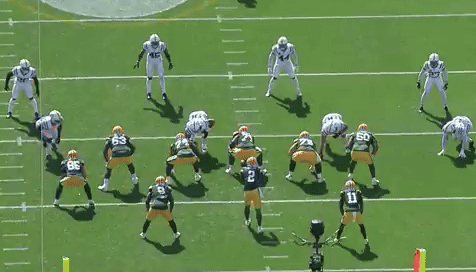Jordan Love or Malik Willis, the gameplan may not change much vs. Titans
Jordan Love practiced Wednesday, but that's not proof he will play. Whether he does or not, the gameplan doesn't have to be that different for Matt LaFleur.
Hope is not a strategy. Jordan Love said he’s “hopeful” to play Sunday against the Tennessee Titans a little more than two weeks after sustaining an MCL injury against the Philadelphia Eagles in Week 1. Love admitted Wednesday after practice that even if he can play, he won’t be able to move around the way he’s used to, which necessarily impacts the way Matt LaFleur calls the game. Coincidentally, that limitation fits nicely with the way Green Bay handled Malik Willis’ start against the Indianapolis Colts. More importantly, the ways that gameplan needed to evolve regardless of who was playing under center, will work no matter who gets the start.
Against the Colts, LaFleur put Willis in shotgun, utilizing single-wing concepts that are as old as the game itself. You can find grainy videos from the 1950s and ’60s of teams running plays exactly like this one.
Executing these run concepts on a week’s notice speaks to the coaching and talent of this offensive line in particular, as these aren’t exactly Day 1 installs in the offense. It takes timing, precision, and coordination, the kind of attributes we usually think of with the passing game but are every bit as applicable here.
When LaFleur goes to this many designer playcalls — they’re designer in that they’re unique to the gameplan that week, not because they’re particularly novel in the game of football — that muddies the options for the play that comes off of it.
If the concept requires Malik Willis to reverse pivot and hand the ball to Josh Jacobs, the play-action concept theoretically requires such an action too. Remember, play-action is most effective when the defense thinks it could be a run, when the play looks like a run in a situation where they’d be expecting one.
In addition to the pulling guard and slicing tight end, notice how on this play, Josh Myers doesn’t care if the defensive tackle gets upfield as long as Myers can wall him off effectively enough to keep him from blowing up the exchange point with Willis. That wouldn’t work if Willis has to keep the ball here to make a throw. It would have to be blocked differently, or have different footwork from the quarterback.
Keep reading with a 7-day free trial
Subscribe to The Leap to keep reading this post and get 7 days of free access to the full post archives.





